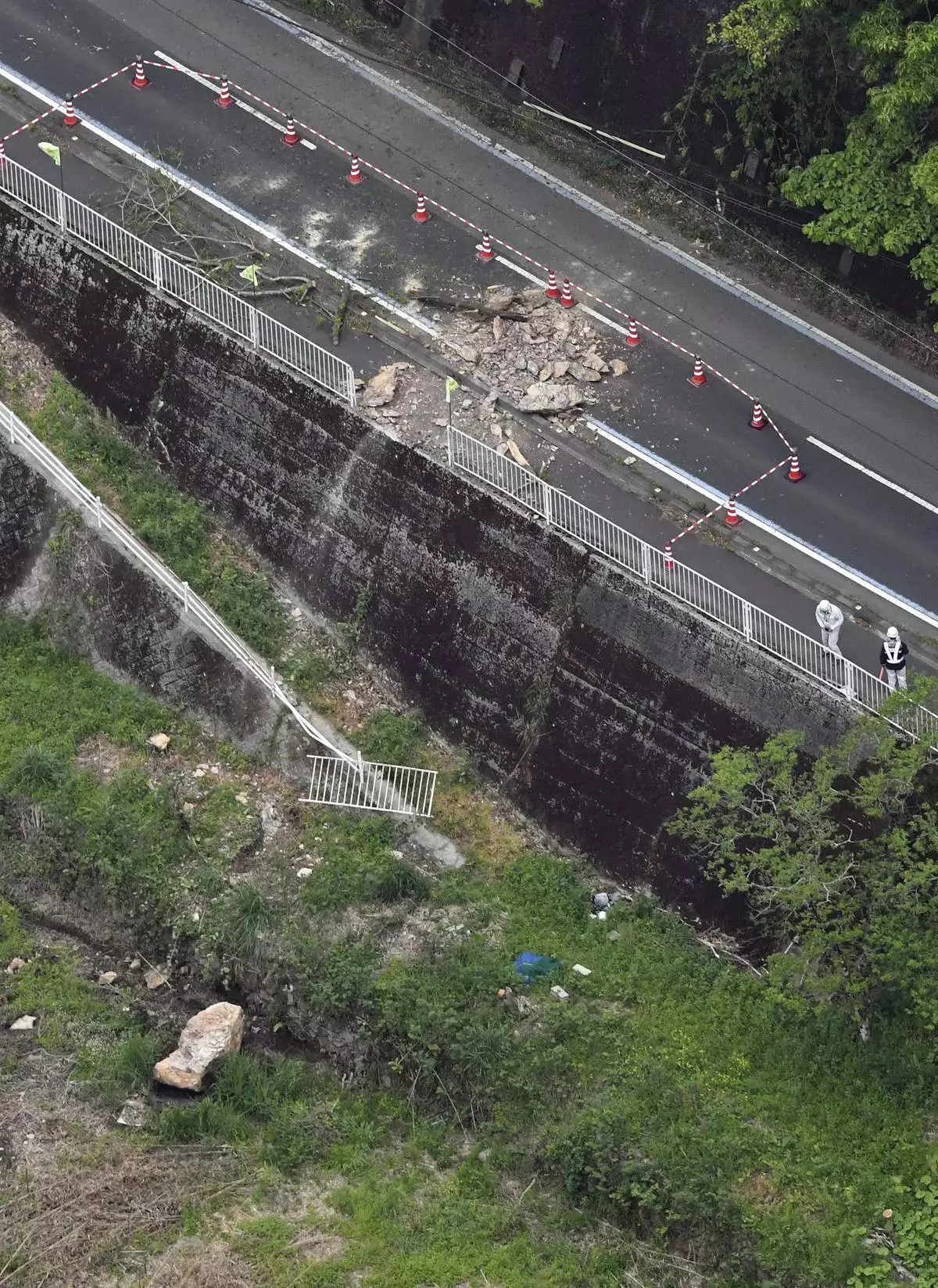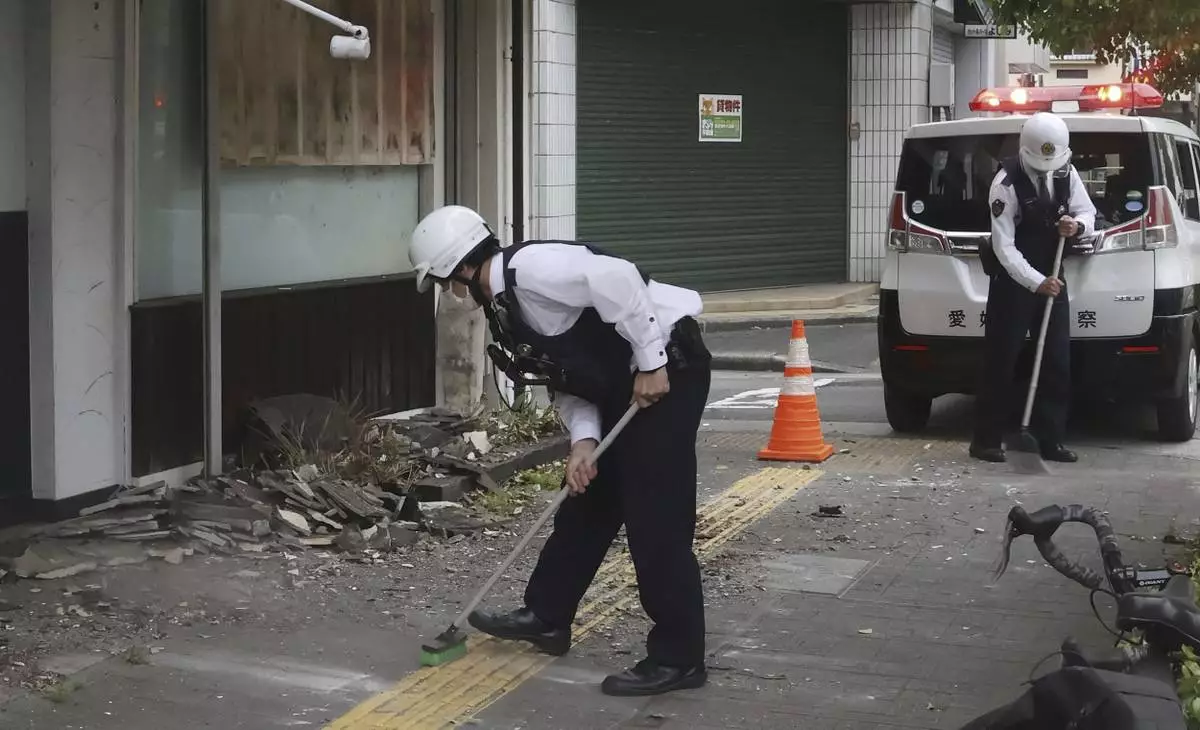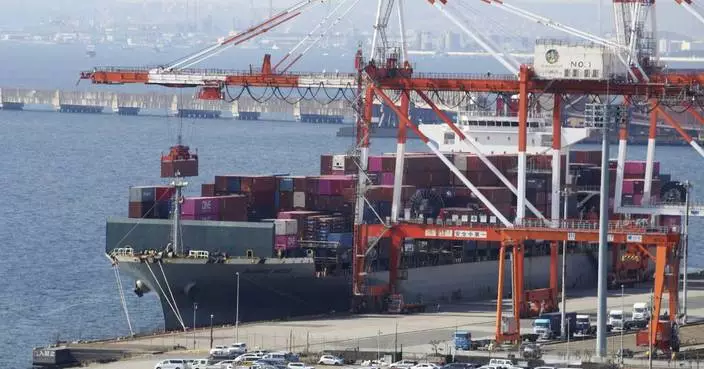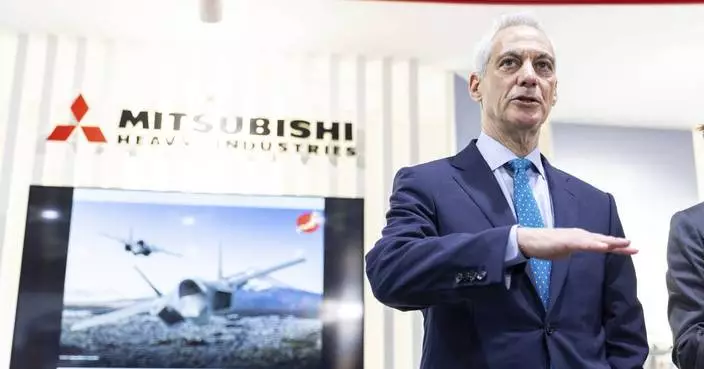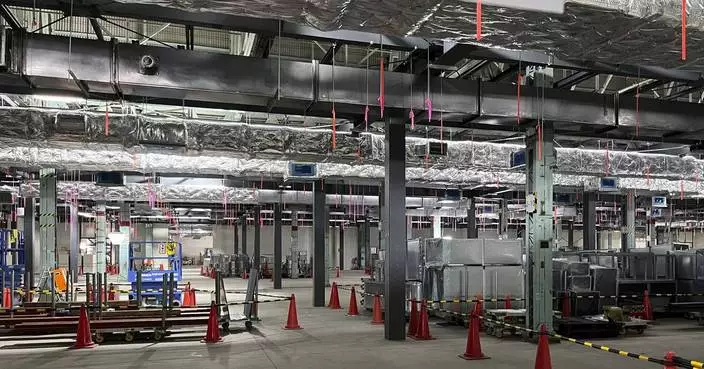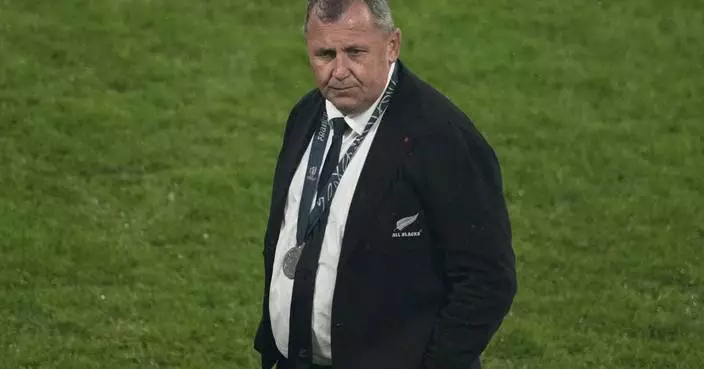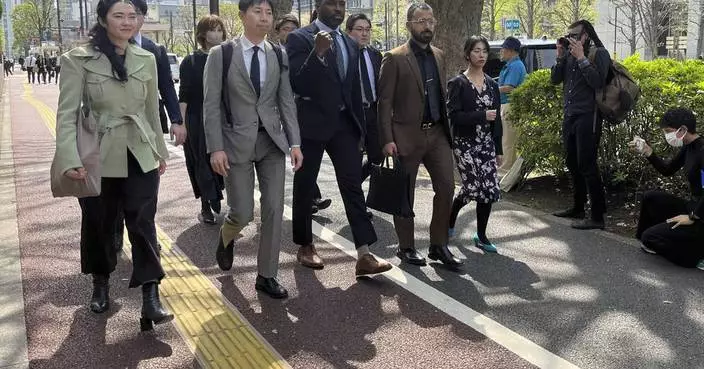Japanese Prime Minister Shinzo Abe stressed Wednesday that pressure should be increased on North Korea to convince it to begin talks on ending its nuclear and missile programs.
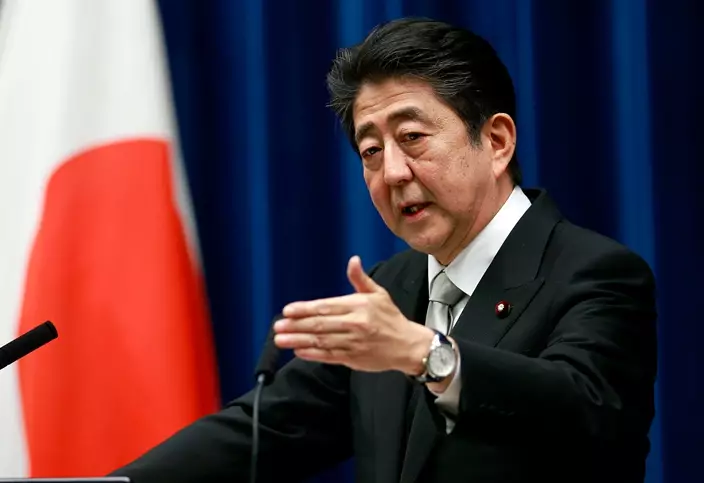
Japan's Prime Minister Shinzo Abe speaks during a press conference at Abe's official residence in Tokyo, Wednesday, Nov. 1, 2017. Japan's lower house of parliament re-elected Abe as prime minister Wednesday after his party won a resounding victory in a snap election on Oct. 22. (AP Photo/Shizuo Kambayashi)
Japan's parliament re-elected Abe as prime minister earlier Wednesday, just in time for U.S. President Donald Trump's arrival Saturday on the first stop of his first tour of Asia as president.
Abe reiterated his full backing of Trump's policy of putting all options, including military ones, on the table in dealing with North Korea. He said he hopes to have extensive talks with the American leader to step up cooperation between the U.S. and Japan regarding North Korea.
"I hope to set aside ample time to analyze with him North Korea's latest developments and discuss ways to respond, and make sure we cooperate even more closely toward an early resolution of the North Korean nuclear and missile problem," Abe told a news conference after reappointing his Cabinet.
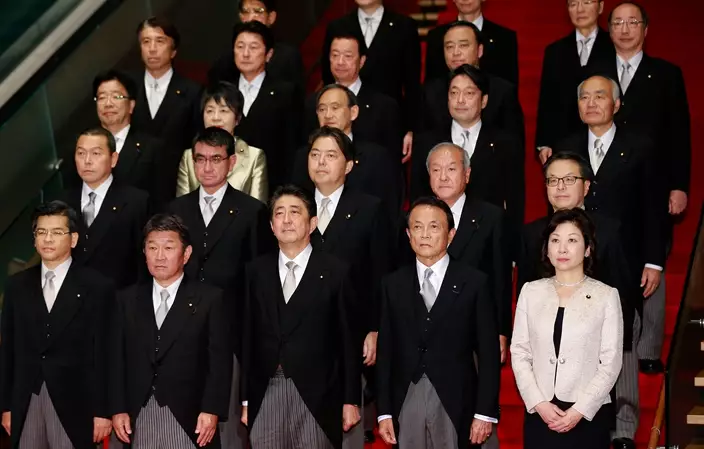
Japan's Prime Minister Shinzo Abe, front center, poses with his new Cabinet for an official group photo at the prime minister's official residence in Tokyo, Wednesday, Nov. 1, 2017. (AP Photo/Shizuo Kambayashi)
He described the security environment surrounding Japan as one of the most severe since World War II because of North Korea's growing nuclear and missile threat. Abe also pledged to introduce measures to strengthen Japan's national security.
Japan and the United States have imposed sanctions on North Korea in addition to tough new measures imposed by the U.N. Security Council after the North tested two intercontinental ballistic missiles and conducted its most powerful nuclear explosion yet.
Abe, who has been Japan's leader since December 2012, easily won a majority of votes in the parliamentary balloting Wednesday.
Abe, 63, dissolved parliament's lower house in late September to force an election. Political analysts saw the move as an attempt to win a new public mandate and re-establish his hold on power after a plunge in approval ratings during the summer.
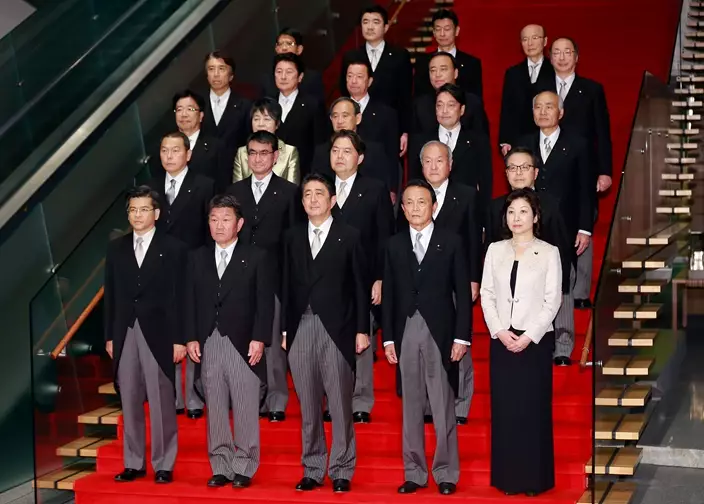
Japan's Prime Minister Shinzo Abe, front center, poses with his new Cabinet for an official group photo at the prime minister's official residence in Tokyo, Wednesday, Nov. 1, 2017. (AP Photo/Shizuo Kambayashi)
His Liberal Democratic Party won a large majority in the Oct. 22 popular vote. Together with a junior coalition partner, the Komei Party, it retained a two-thirds majority in the more powerful lower house.
The victory boosts Abe's chances of being re-elected as LDP leader next September for another three-year term, potentially extending his premiership to 2021.
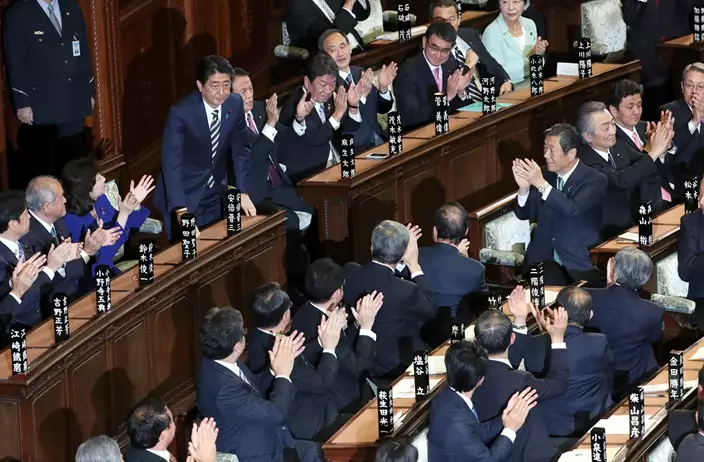
Japanese Prime Minister Shinzo Abe bows as he is applauded after being re-elected as the nation's 98th prime minster during an extraordinary session at the parliament's lower house in Tokyo Wednesday, Nov. 1, 2017. (AP Photo/Eugene Hoshiko)



